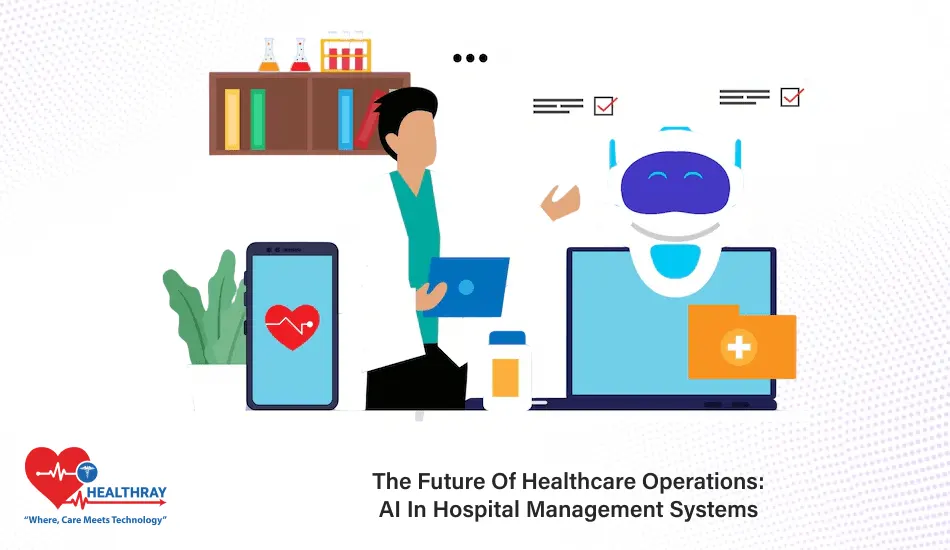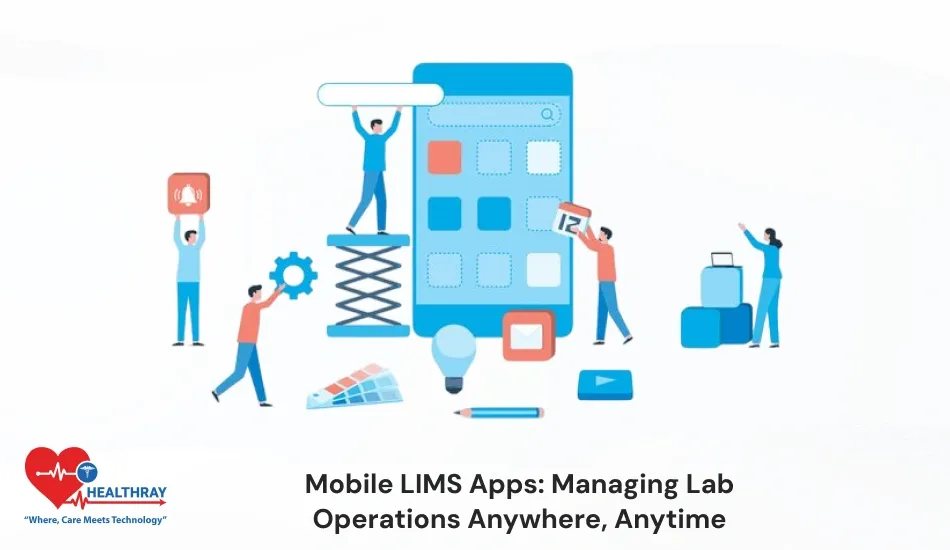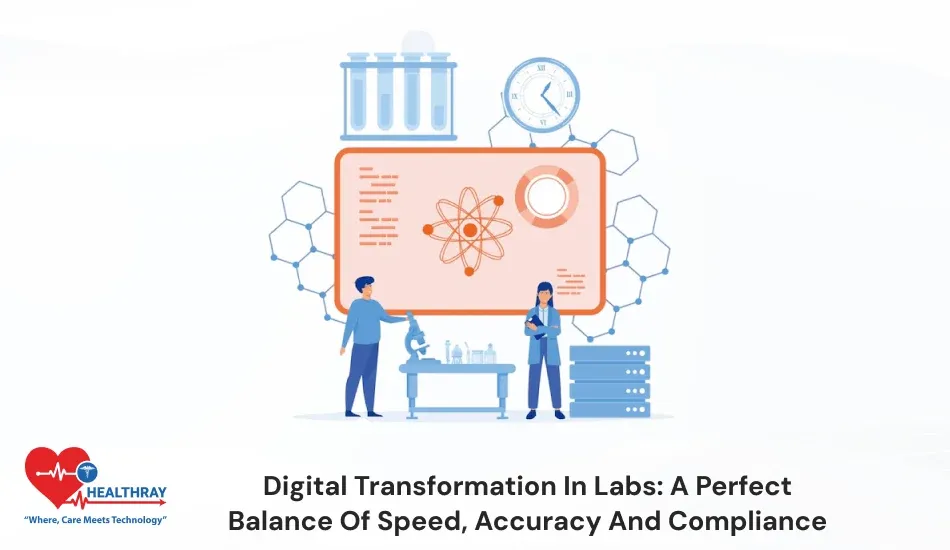Hospital management is quite a puzzle to solve; from taking care of patients’ records to managing staff schedules and ensuring the operations run smoothly, it is literally a balancing act. AI keeps changing the game for healthcare facilities in tackling these complex issues. AI has become more than just a buzzword; it is evolving into something very important for hospitals that are focused on maximizing efficiency and providing better patient care.
Today, hospitals around the world are investing in AI-based technologies to streamline workflow, predict needs, and prevent human faults in the process. The thing that poses a question for healthcare providers, administrators, and even developers is no more whether-but how fast and efficient AI will bring changes in the way hospitals will be managed.
How AI today pushes practical steps into overcoming historical constraints within hospital operations will be seen in this article. It also shows what AI is capable of doing now and where it is heading for the Hospital Information Management System. Whether one is a seasoned administrator or tech-savvy about seeing the future, there is definitely something to learn regarding AI forging ahead into healthcare.
AI Applications in Hospital Management
The revolutionary capabilities of artificial intelligence enter hospitals. Not just automation, but faster intelligent decisions. Thus, here are the applications of AI in hospitals:
Scheduling and Workflow Optimization
The majority of hospital schedules are hectic. AI analyzes patterns amongst patients’ appointments, the availability of staff, and room utilization, then implies the better schedules available while reducing conflicts and downtime. An example is how AI predicts peak hours then uses them to utilize resources for smoother operations.
Improving Patient Care
AI usually enhances the quality of patient care, anticipating health risks before they will go worse. AI systems analyze medical records with lifestyle characteristics and historical data for searching patterns, which allows doctors to prevent serious complications by acting before they happen. Personal treatment plans based on AI insights are becoming a reality, ensuring that patients receive the proper care at the right time.
Administrative Tasks
Administrative work can be quite overwhelming at times for healthcare staff. AI takes up those burdensome, repetitive tasks like billing, coding, and patient record management. This way, errors are reduced, while excess time is freed for proper patient care. Artificial intelligence-powered hospitals report fewer discrepancies in their documentations and billing processes, thus increasing efficiency and accuracy.
Driving Resource Allocation Using Data
AI does not only have control over current data; it even makes sense of it. With predictive analytics, admissions of patients can be accurately predicted, efficient planning of bed allocation, and even stocking of supplies. It neither overloads nor underuses one’s resources, hence time and cost savings.
Benefits of AI in Hospital Operations
Artificial intelligence is making hospital management smarter and effective. Not only this, but the lifelong benefits derived from integrating AI go far beyond automation. Here are some principal ways AI is bringing value to healthcare operations:
Improve Patient Outcomes
AI tools enable physicians to understand faster and make better decisions when managing the patient. For example, health risks are identified through predictive analytics before they actually develop into conditions, as this permits early interventions to minimize complications and improve rates of recovery. AI is further tailoring the care to be given to the individual patient needs.
Operational Efficiency Improvement
AI makes complex workflows easier by replacing repetitive tasks such as appointment schedules and management of patient records with automation. Thus, saving the time for those tedious manual activities while at the same time significantly reducing errors. AI leaves healthcare staff with more time to devote to other patient care by offloading much of the administrative burden.
Better Utilization of Resources
Hospitals mostly fall under the common offense of either under-using or overbooking a resource. AI predicts demand in analysing patterns of admission, the trend in discharge, and hence the patient flow. The insights based on the aforementioned patterns enable administrators to better allocate their beds and staff and medical supplies by preventing waste and ensuring availability when actually needed.
Cost Effectiveness
There is, indeed, an upfront investment, but eventually AI saves money in the long run. Automated systems eliminate all the overheads attached to manual labor and errors. Such gains may directly be from optimized scheduling and inventory management, which affect a hospital’s bottom line, making operations leaner and more profitable.
Real-time information for Decision Making
With this intelligence, administrators and clinicians can access real-time information on dashboards. This allows them to make faster decisions such as reallocating staff during emergent situations or spotting trends in patient care. Such agility enlivens the overall experience for both staff and patients.
How to Integrate AI with Hospital Systems
Integrating AI into hospital systems can get really overwhelming. However, when done in a structured way, it can be managed. Here is a step-by-step guide, then, on how to make AI work as smoothly as possible into healthcare operations:
Current Systems Assessment
First, hospitals have to assess their existing infrastructure before being migrated to AI. Some important questions would include:
Do the current systems speak to AI technology?
Is the data centralized and available for AI analysis? Knowing the gaps in the system will help choose the right AI solutions as well as ensure gentle integration.
Select the Right AI Tools
There is no ready-made formula for using AI solutions. Set priorities on tools based on:
Solved issues. Most hospitals will be seeking solutions to patient flow management or resource optimization.
Compatibility with electronic health records (EHR) and other hospital software. Scalable, adaptable, and customizable AI platforms are selected so that the hospital can continue adjusting the solution in line with its needs.
Build a Data Strategy
AI is made possible through data but not without the quality of the data and how accessible it is. Hospitals must:
- Organize all patient records and operating data to make them accessible in the AI system.
- Ensure compliance in regard to data privacy laws, such as HIPAA.
- A proper data vision is the foundation of a successful and effective implementation of AI in the workplace.
Train Staff
AI isn’t only about technology; it’s also about people. What hospitals will need to do is find effective training for their staff about using AI tools. An example would be:
Workshops and accompanying hands-on learning sessions.
Find and appoint a select few AI champions or specialists in guiding others to adapting to the new system. With a well-trained staff, maximum potential use of technology is ensured.
Start Small Scale-Up Gradually
It is wise to start with a few pilot projects in one or two departments. For instance:
Entrust AI-based outpatient appointment scheduling to an outpatient service before extending it hospital-wide.
Predictive analytics for just one, like cardiology, to learn how the process works. Small beginnings allow challenges to surface early to refine strategies before scaling up.
Monitor and Optimize
The deployment of AI is not a one-off thing: Hospitals must also continuously
Monitor AI tool performance.
Collect staff and patient feedback.
Make adaptive responses to data and improve the system.
Challenges and Ethical Issues

Artificial Intelligence has so much promise, but it brings with it challenges and ethical concerns in the implementation process through HMS Software. Handling such problems is indeed another step toward successful and responsible integration of AI into health operations.
Data Privacy and Security
Much sensitive data is dealt with in hospitals by patients. These data, which are huge in size, constitute the databases where AI systems would effectively run. But this also raises some issues regarding the following: Unauthorized Access-the breaking privacy of patient records by unauthorized person(s). Compliance with Regulations-Hospitals usually follow strict regulations like HIPAA and GDPR for patient data protection. To address this, hospitals need to invest in robust cybersecurity measures and require compliance among AI vendors to strict data protection policies.
Ethical Use of AI
AI systems make their decisions through algorithms, which could give rise to biases or ethical dilemmas:
Algorithmic Treachery-AI may consciously deviate favorable outcomes toward certain groups, largely due to biased training data.
Transparency. Both the hospital and patients must have some means of understanding how exactly AI decisions are made. In order to ensure ethical AI systems, the data sets must be diverse, and auditing on a regular basis should be carried out for fairness and transparency.
Financial and Technical Barriers
Setting up AI comes at great initial costs through hardware, software, and training. Challenges comprise:
Budget problems: Smaller hospitals might find it hard to spare funds for the AI.
Legacy System: Hospital management systems that are older probably would not incorporate AI technologies. These barriers may be surmounted through partnerships, government grants, or phased implementations.
Staff Resistance to Change
AI may be regarded sometimes as a threat to jobs or as a very complicated addition to everyday chores. The following are some of the common concerns:
Fear of job loss.
Fear of using AI tools. All of those can be overcome through including staff early in the planning process, providing hands-on training, and focusing on how AI works rather than against human expertise.
Ensuring Reliability and Accuracy
AI systems are not always correct. Errors in either algorithms or data can lead to incorrect predictions or decisions, which may eventually affect patient care. Hospitals therefore need to:
Conduct regular validation and updating of models.
Maintain a system in which human oversight is always involved in critical decision-making processes.
Addressing the Legal Implications
AI raises questions of accountability such as:
Who answers for the medical error caused by a decision taken by AI?
In what manner would hospitals show above-board how they have taken AI to a legal level? Clear guidelines, with compliance with existing laws, can mitigate such risks.
Future Trends in AI for Healthcare

The future of healthcare operation very much depends on the progression of artificial intelligence. Hospitals adopting such new AI technologies will find themselves in the lead position with respect to innovation. Some of the big trends in the future of AI in hospital management include:
Surgical Robot With AI
Robotic surgery with AI is more precise and reliable. They give surgeons a better view, access to real-time data, and precision instruments. The result is less recovery time and complications and better patient outcomes.
Advance Predictive Analytics
AI has moved from issuing simple predictions to find more dynamic insights. Predictors for AI in hospitals may include:
- Patient Admission Forecast: Forecasting admission rates for better resource allocation.
- Disease Progressions Predictions: AI systems analyzing medical histories to forecast possible evolution of chronic diseases.
Personalized Medicine
AI is paving the way toward tailored treatment plans. Using genetic data, lifestyle information, and medical history, AI may create:
- Individualized treatment plans for individuals.
- Drug recommendations that minimize adverse reactions based on genetic compatibility.
AI for Telemedicine
With the rise in demand for virtual healthcare services, telemedicine is growing smarter with AI. Features include:
- AI-powered Chatbots: Responding to patient inquiries and triaging cases before they are sent to the doctor.
- Remote Monitoring Tools: Monitoring patient vitals in real-time and alerting physicians of any anomalies.
Workflow Automation is Bettered
With the advance of AI, better will become its ability of administrative task handling. Future systems could:
- Patient records will be updated automatically during consultation.
- Settlement of insurance claims via an automated methodology to achieve greater turnaround.
Voice Control
AI-based voice recognition is making its way into hospitals. It allows:
- Data entry by doctors and nurses without using the hands.
- Greater accessibility for patients with disabilities.
Collaboration of AI with IoT
Hospital management sees the collaboration between IoT and AI at work. For instance:
- Smart Beds: Provided with sensors that keep track of a patient’s movement and can alert staff should assistance be required.
- Connected Medical Devices: Devices that can share real-time data with AI systems for faster decision making.
Bridging Global Healthcare Inequity
AI can go a long way toward closing the gaps in the world of healthcare. In poorly resourced conditions, AI could:
- Diagnose diseases with minimal gadgets.
- Provide decision support to healthcare workers with limited training.
Augmented Reality (AR) in Training
AR tools powered by AI change the way medical staff are getting trained. These tools provide:
- Interactive simulations for surgical procedures.
- On-the-spot navigational guidance during live operations, increasing precision.
Conclusion
Artificial intelligence is no longer an abstract thought in the medical world; it has already become a tool to change hospital management systems. Artificial intelligence has had its fingers in many pies from administrative work to patient care. The ability to foresee trends, disperse resources, and make decisions has truly cemented AI as a game-changer in healthcare for professionals, administrators, and developers.
That said, introducing AI in healthcare comes with its own challenges. Some challenges include the privacy of data, presence or absence of ethics, and in general, the amount one would have to incur for installation. The fact that these were identified before as a boost for hospitals will go a long way in tackling such threats that are taken seriously in their implementation.
As technology expands, its domain will only expand in hospital operation functions. To be a leader in such transformation, one needs to remain informed and proactive. Truly, the path to the future of healthcare is paved by AI and will open up unimaginable possibilities for innovation and improvement.





